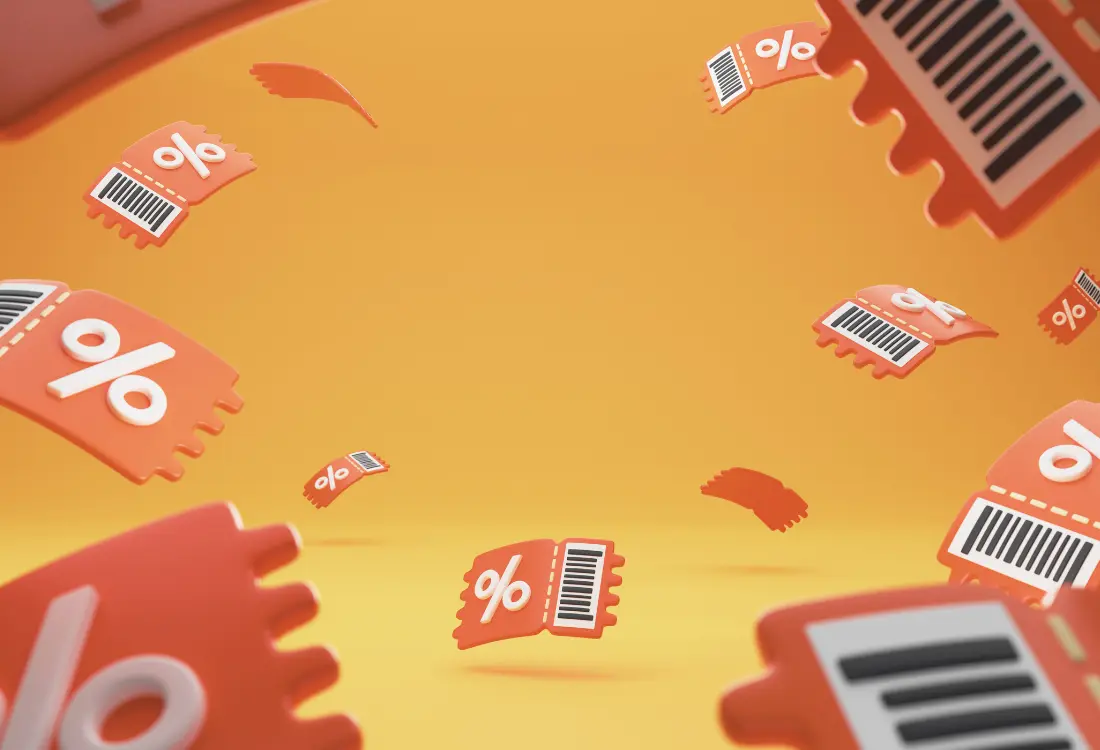Hello everyone and welcome back!
Today we will start a mini-series in which we will go through various tools and tricks of the trade when it comes to affiliate marketing. In this series I will look at various tools that are widely used within affiliate marketing and:
*Think about when they are best used
*What they are suited for
*What they aren’t suited for
*…and why all of this matters and why most people will get it wrong
So let’s jump right in. The topic of this post, as you might have guessed from the title, is voucher code tracking. Let me first break down the subject quickly to specify what exactly I am talking about today and then go on to thinking about when to use it and what can be expected from it.
What is a voucher code?
A voucher code is a short sequence of letters and numbers that customers can enter during checkout to receive discounts, promotions, or coupons on their purchase. These codes are sometimes also called promo codes or discount codes, and they can be offered for both online stores and physical shops.
Marketers often create unique codes for specific campaigns, so they can verify where a customer found the code and track how effective it was. For example, one partner might receive a custom code to share on their website or social media channel, while another uses a separate code for offline services. This makes it easy to review results and understand the difference between campaigns, while preventing fraud or misuse.
What is a tracking voucher?
With a tracking voucher we simply mean the tool that allows advertisers to create unique and custom voucher codes for their affiliates that also are tracked. This means that the advertiser can create a code for a particular partner that only this partner then is able to use, and the advertiser is then able to get the full report on this voucher.
Promo codes and discount codes explained
When talking about a voucher code, many people also use the terms promo codes or discount codes. While they all serve the same purpose — to give customers savings on their purchases — there are subtle differences in how they are used. Promo codes are often part of larger marketing promotions, where advertisers want to encourage new customers to try a product or service. Discount codes, on the other hand, are usually tied to a specific store or campaign and give a fixed reduction in price at the moment of pay or checkout.
In practice, voucher codes, promo codes, and discount codes all work in a similar way: a short number or sequence of letters that a customer can enter when making an order online. For advertisers, the key is not only to reward the customer with discounts but also to track the effectiveness of each code. By assigning the right type of code to the right campaign, marketers can better understand which offers generate the most valuable results.
Why are they used?
Tracking vouchers make the use of voucher codes more elegant, especially in e.g. Instagram or similar social media channels. With the help of the tracking voucher you are able to give a unique voucher to a specific ad inventory and after that track the effectiveness of it. In contrast to regular vouchers, it also allows for offline tracking with the help of the vouchers – Every time the voucher is used it will be tracked and traced back to the correct ad inventory. Back in the days there used to be the problem of “voucher stealing” where voucher affiliate A would “steal” the voucher code from voucher affiliate B etc. which made the whole process much harder to manage. This is not a problem anymore with the use of tracking vouchers.
What data can you gather?
With the help of the tracking voucher the advertiser is also able to to track the effectiveness of voucher codes much better than before since you are able to gather data specific to the unique tracking voucher you’ve created. Our platform will give you all the relevant data regarding the tracking voucher which will make it much easier to create new strategies, amend old ones, or simply scale existing ones.
Their limitations
So this is the part that most affiliate networks or partners will skip – What are the limitations of their new and fancy tools? Well, when it comes to the tracking vouchers we will have to remember that this is only part of your affiliate marketing which is only a part of the totality that is your digital marketing presence. Depending on how big the affiliate part of your digital marketing strategy is, it will also directly affect how useful these tools are and how exact the tracking is on a grand scale. My point here is that affiliate is (and rightly so!) only a part of your digital marketing toolbox and you will have to coordinate affiliate together with your other channels to get the complete picture. I cannot stress this enough – Please always make sure that you are able to attribute traffic correctly so that the channels used and the effectiveness of them are as accurately reported as possible and be wary of “contaminating” the data. You should be certain of all the touch points in the whole ecosystem of digital marketing and I wholeheartedly recommend a holistic approach to your digital marketing strategy.
Conclusion
Voucher tracking is a very useful tool in your affiliate marketing arsenal and we warmly suggest you to use them frequently. With the help of the tracking vouchers you are able to:
*Make sure vouchers are not “stolen”
*Gather precise data on the specific tracking vouchers
*Track offline
*Create a smarter and more data driven strategy on the use of vouchers
Having said this, however, I want to be very clear that as with any tool used it has its specific uses and its own limitations and should be used accordingly – All tools are only as good as their users in the end, but don’t worry: We have a whole team of experts who are specifically trained in using these tools and helping you get the best effect out of them as well. If you have any questions regarding this (or anything else) please feel free to comment, send an email, call me, or schedule a meeting with someone from our team to tell you more. In the next blog post I will talk about another very useful tool in the affiliate marketing arsenal and I will (again!) also comment on why they are not as almightily powerful as most affiliate networks will want you to think they are. Until next time!






